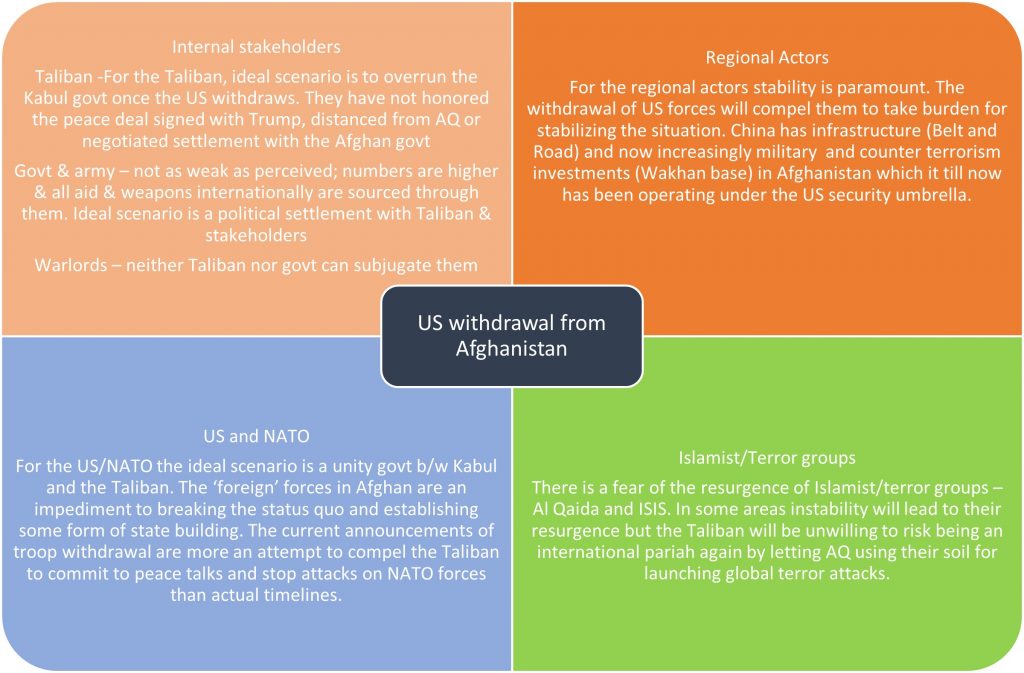Since President Biden announced troop withdrawal from Afghanistan by 11 September (pushing the initial 1 May deadline), the speculation has been ripe with doomsday scenarios of state collapse, civil war and global terror attacks. Let’s analyse the current state of events, where two main scenarios are likely to play out:
- State building either through a unity government or Taliban: Most likely. All external powers (including Middle Eastern states) will pressure the internal stakeholders to negotiate a political solution, which will be ideal & least disruptive in the short run. The second scenario would be the Taliban gaining enough ground in and around Kabul to form the govt with the blessings of Russia and China but curtailing its Islamist tendencies. This does not mean that there will not be a backslide in women’s rights etc. within Afghanistan but that the nation’s soil will not be used to harbor terrorists or launch global attacks. This sort of Taliban rule will also be acceptable to the West.
- State collapse & descent into civil war: The worst-case scenario is a civil war b/w the Taliban and the Afghan government, with external powers taking opposing sides. It can degenerate into a protracted stalemate like Syria, with instability leading to the resurgence of terror groups and refugee issues. But this scenario is low probability because a) the stakes of the US in Afghanistan are less critical than other regional stakeholders and thus not likely to elicit much effort to retain. b) Without the West’s support, the Kabul govt is a weak match to the Taliban & cannot put up a sustained campaign c) Importance of Afghan to the global terror network and ‘world peace’ has diminished.






